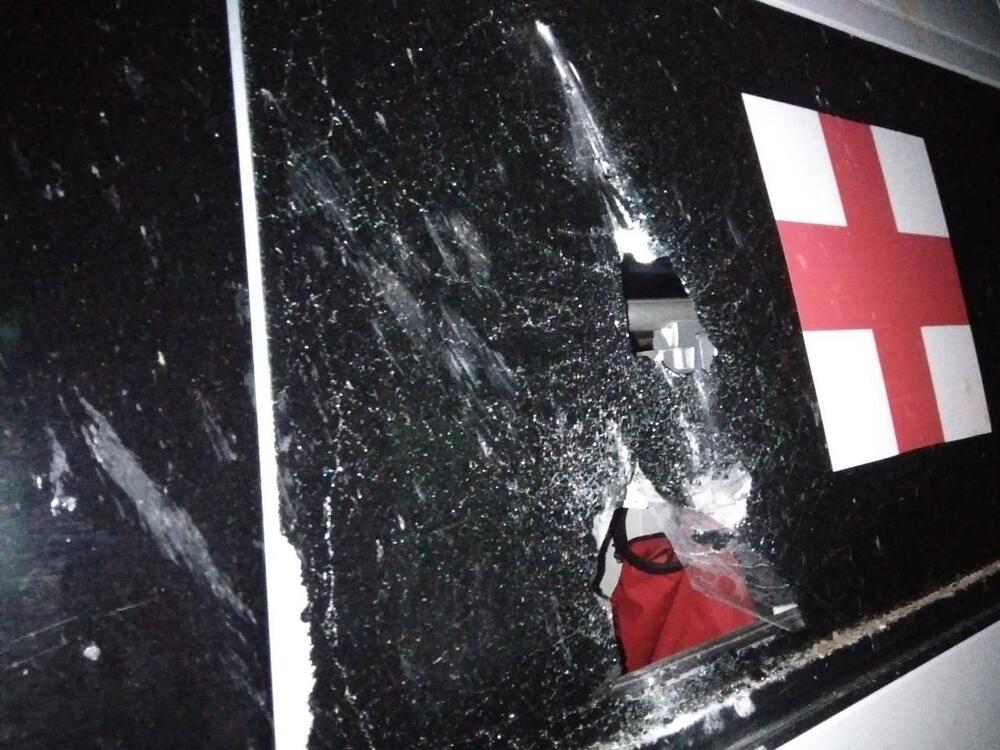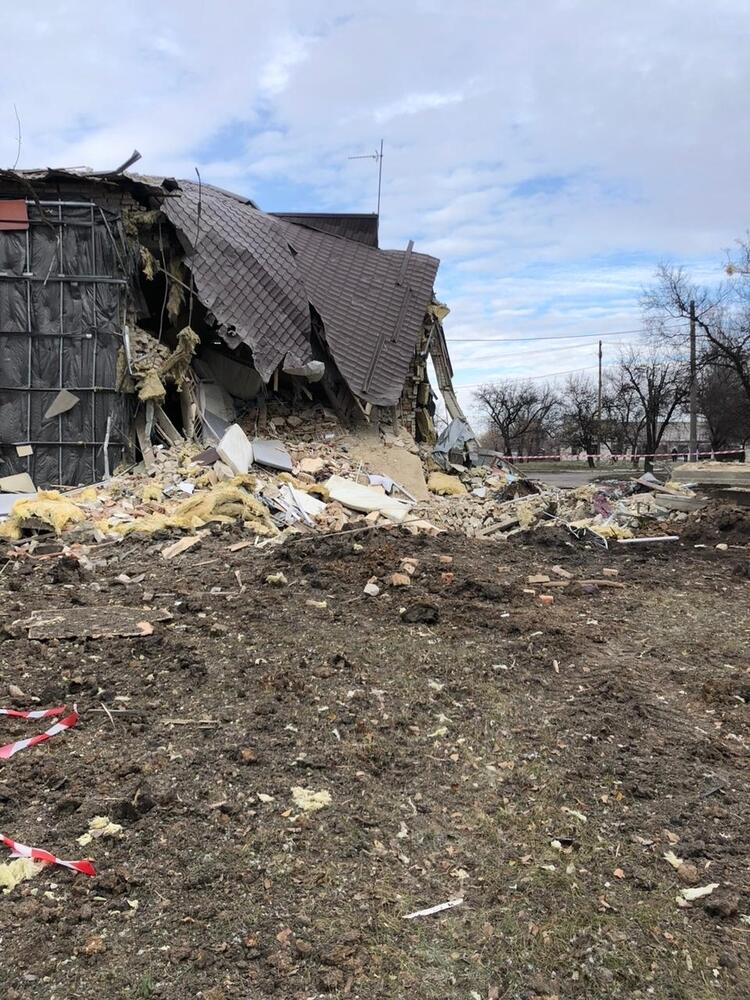Ukraine: Hospital attacks take a tragic toll
On Monday 20 November, two missiles hit a hospital in Selydove, in the Donetsk region of Ukraine.
Five Médecins Sans Frontières / Doctors Without Borders (MSF) staff were present at the hospital, and, although no MSF staff were harmed, a further eight people were injured – including two Ministry of Health staff.
Tragically, three people have been reported killed when part of the hospital collapsed from the missiles.
MSF condemns this attack on a hospital, the second in a week, and once again calls for the protection of medical facilities.
Approaching explosions
“At around 11:30 pm, we began hearing explosions,” says Artem Tretiakov, an ambulance driver with MSF.
“Initially, they seemed distant, but gradually they approached. Suddenly, a missile struck the room where myself and other MSF staff were present. Fortunately, the impact was on the corner of the room, which is likely what saved us.”
After the attack, MSF’s team immediately began providing emergency first aid for those injured inside the hospital. An additional intensive care ambulance and emergency team were also dispatched to the hospital in Selydove to provide further support.
“All the lights in the hospital premises went out. We proceeded to the corridor and enquired about anyone needing assistance,” says MSF doctor, Yevheniia Mitiaieva.
“Using flashlights and mobile phones, we provided first aid, making makeshift bandages.
“An 80-year-old patient was in critical condition. He had multiple wounds from window glass that shattered during the explosions. After our initial treatment, we transferred him in one of our ambulances to another hospital for further medical care.”

Help us prepare for the next emergency
The hospital in Selydove sustained severe damage from the attack while two MSF ambulances based there were also damaged. These are part of an ambulance system that has transported more than 10,600 patients – 62 percent of which were the result of violent trauma – since May 2022.
“The blast wave shattered the ambulance windows,” says Artem.
“Despite this, the vehicles remain operational and once the glass is replaced, we will resume our work.”
Attacks on healthcare
This is the second attack within a week on a hospital in Ukraine where MSF is present.
On Monday 13 November, a hospital in the Kherson region was targeted with artillery, which destroyed 150 windows and badly damaged the emergency department where MSF worked.
Three people were injured, and a Ministry of Health staff member died from injuries sustained during the attack.
“We utterly condemn these abhorrent assaults on hospitals, which have resulted in the tragic deaths and injury of patients and medical personnel,” says Vincenzo Porpiglia, Head of MSF in Ukraine.
“These attacks continue to put the lives of healthcare staff at risk and jeopardise our ability to deliver critical medical treatment to patients in dire need.
“Medical facilities are supposed to be places where lives are saved, not taken.”
MSF has been working in the emergency room and intensive care unit of the hospital in Selydove since July 2023 and in the emergency room in the hospital in Kherson since October this year.
Due to the insecurity and extensive damage to the buildings, MSF is forced to temporarily suspend its presence inside these hospitals. However, we are committed to continuing to support with ambulance referrals.
MSF teams continue to work in the emergency departments and provide surgical care in other hospitals in Donetsk and Kherson regions, as well as conducting mobile clinics in areas close to the frontlines where there is limited access to healthcare services.
MSF and the war in Ukraine
Fighting in Ukraine has killed or injured thousands of people, while more than 5.6 million refugees are currently scattered across Europe.
Médecins Sans Frontières / Doctors Without Borders (MSF) teams are working to deliver emergency medical aid to people still in Ukraine, as well as those now seeking safety in neighbouring countries.

